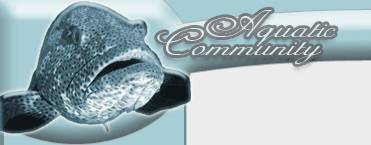Canine herpesvirus
Canine herpesvirus (CHV) can cause a severe and often fatal hemorrhagic disease in puppies. The mortality rate is very high for puppies less than three weeks old. If the puppy is less than a week old, the mortality rate is around 80 percent. If the puppy is 3-5 weeks old, it has a much greater chance of survival but it can still develop a latent infection that causes future health problems. In adult dogs it is seldom lethal, but it is a sexually transmitted disease that can cause reproductive problems.
Canine herpes virus background
The canine herpesvirus was discovered during the 1960s. It is today known to occur in England, Germany, the United States, Canada, Japan and Australia.
Canine herpesvirus in puppies
If the mother is infected by CHV, she can transmit the disease to her puppies via the birth canal. The puppies can also contract the disease from oral and nasal secretions from the mother or other infected dogs that are allowed to come close to the puppies. CHV is not transmitted through the air.
The CHV virus seek out the surface cells of the tonsils, pharynx and the nasal mucosa. They will start to multiply rapidly and eventually spread to the rest of the body. A low body temperature makes it even easier for the virus to spread.
CHV symptoms in puppies
Crying
Depression
Weakness
Loss of sucking reflex
Soft yellow faeces
Discharge from the nose
The canine herpes virus can also lead to necrotizing vasculitis which can cause hemorrhage around the blood vessels in the puppy. Sometimes it is possible to see bruises on the belly, and eye problems such as uveitis, keratitis, reinitis, retinal dysplasia, and optic neuritis can set in.
< 1 week of age
If the puppy is less than one week old, it will usually die within one or two days after showing the initial symptoms.
3-5 weeks of age
If the puppy is 3-5 weeks old, CHP normally gets less severe since the puppy can maintain its body temperature and even develop a fever (the increased temperature makes it more difficult for the virus to spread).
A surviving puppy can develop a latent CHP infection, and some puppies develop neurological problems, including blindness and trouble walking properly. If the dog is subjected to stress or is given immunosuppressive drugs it can cause a latent CHP infection to become reactivated.
Canine herpesvirus in adult dogs
An infected dog can release the virus in secretions from the reproductive organs (vaginal or penile secretions), and sometimes raised sores can be seen on the reproductive organs. The CHP is therefore a sexually transmitted disease among dogs. As mentioned above, the disease can also be transmitted to puppies during or after birth, and through discharge from the nose.
Canine herpesvirus can cause Kennel cough.
If the mother is infected with CHV, it can lead to infertility, miscarriages and stillbirths.
Canine herpesvirus vaccine
In Europe, a vaccine named Eurican Herpes 205 has been available since 2003. This vaccine is administered to the female dog twice; the first time during heat or early pregnancy and the second time 1-2 weeks before its time for her to give birth to the puppies.
Canine herpesvirus treatment
There is no cure for dog herpes, but keeping the puppy warm can help it survive. Some veterinarians have achieved success by injecting antibodies to CHV into the abdomen of diseased puppies.
Virus infections in dogs: (click for more info)
Canine coronavirus in dogs
Canine distemper in dogs
Canine herpesvirus in dogs
Canine influenza in dogs
Canine minute virus in dogs
Canine parvovirus in dogs
Infectious canine hepatitis in dogs
Kennel cough in dogs
Pseudorabies in dogs
Rabies in dogs
